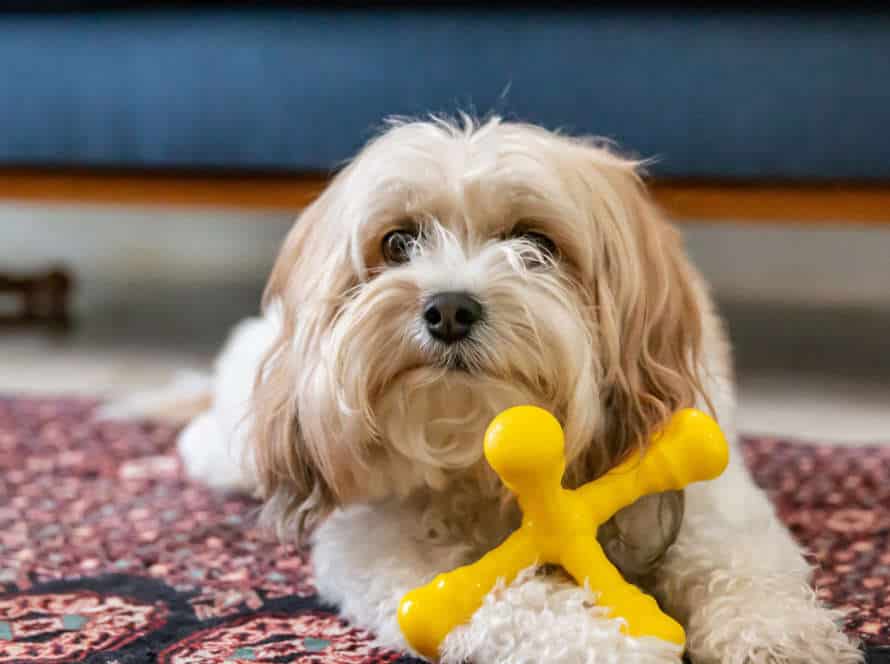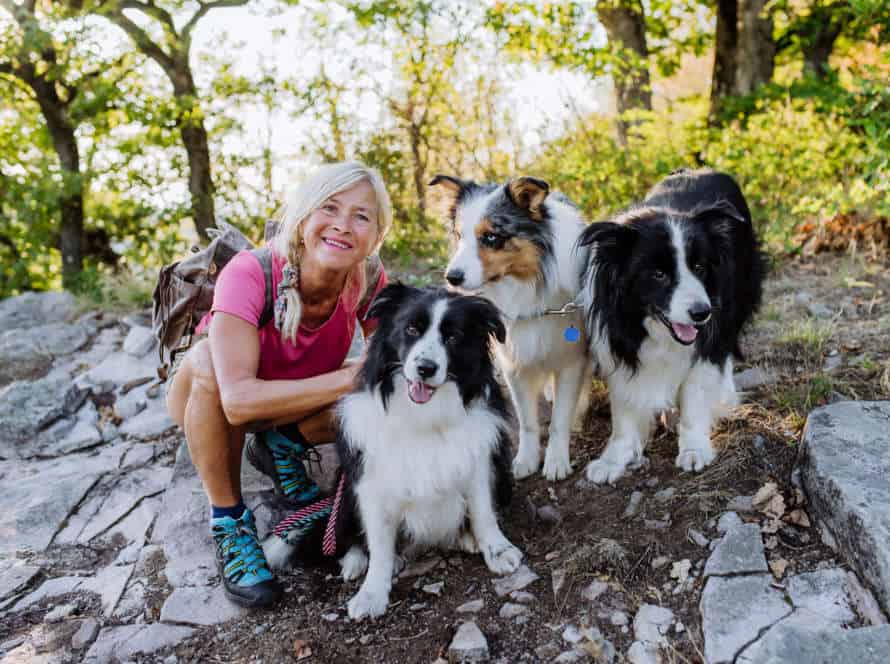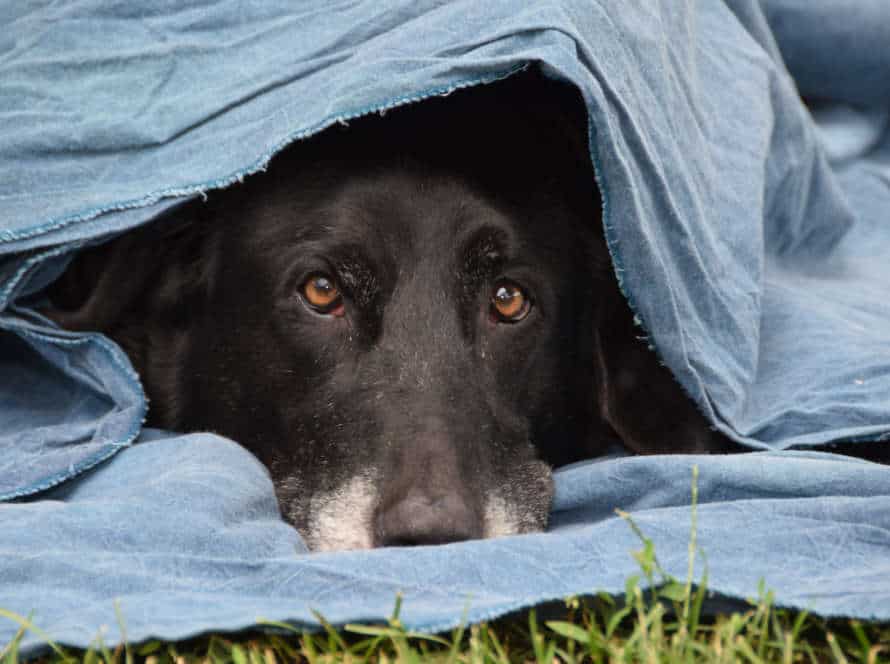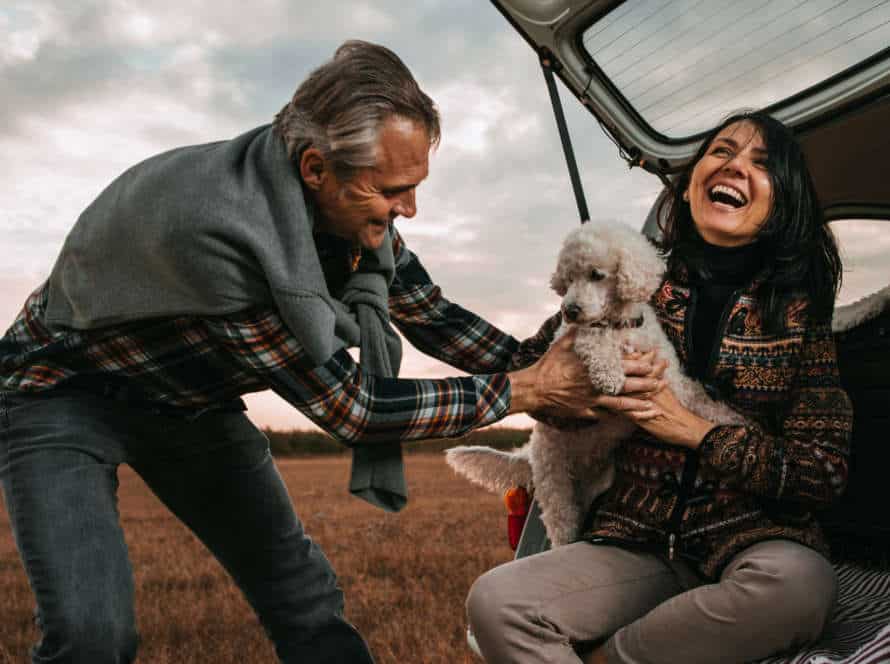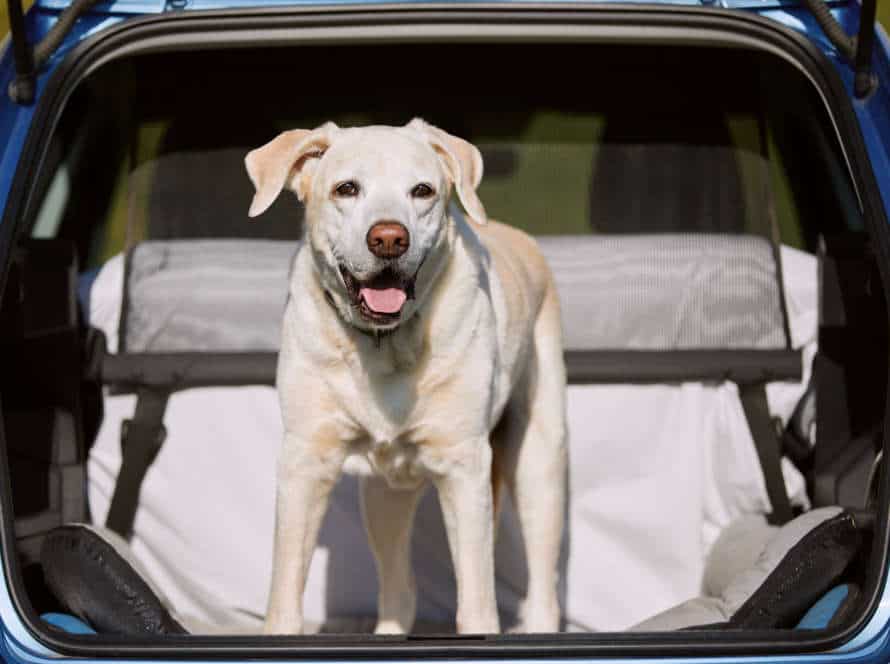Understanding the Importance of Socialization for Puppies
Socialization and early learning are super important for puppies. It helps them become happy members of their family. Socialization is about all the experiences puppies have with people, situations and other animals before the special period ends. During this period, puppies learn about their own species and start to develop their personality. To make sure puppies are well-equipped for the world it’s critical to understand the importance of socialization.
Why socialization is critical for puppies’ development
Socialization is key for a puppy’s growth. It teaches good behavior, uplifts emotional health, and stops bad behavior coming up later. Puppies are most open to new things between 3-14 weeks. At this time it’s important to show them lots of stuff, like people, animals, sounds, and things, in a good and secure place. For scared puppies, introduce them to new stuff slowly, according to their speed, and reward them when they do good. The advantages of socialization last longer than the puppy’s early years. Well-socialized dogs become friendlier, more sure, and can cope with different situations as they age.
Pro Tip: Socializing your dog should be a continuous practice to keep good habits and mental health.
The potential consequences of failing to socialize your puppy
Failing to socialize your pup could cause a slew of behavioral and mental health issues. This can lead to a stressful and unhappy life for both you and your pup. Socialization is necessary for a pup’s healthy development. Lack of socialization can bring about various problems.
Possible effects of not socializing your pup include them being scared, anxious, or aggressive towards people, other dogs, and animals. Separation anxiety can also result, which may lead to destructive behavior such as chewing, digging, or barking excessively.
For timid puppies, tailoring socialization to their individual needs is essential. Begin the process gradually, giving your pup time and space to adjust. Support them during this process.
Make socialization a priority to ensure your pup leads a happy and healthy life. The effort is worth it!
The best age for socializing your puppy
The optimal age for socializing your puppy is 3 to 14 weeks old. This is a crucial period when your pup is ready to learn and form social attitudes that will affect them in adulthood.
You must expose your puppy to a range of people, animals, and environments in a positive and regulated way during this time. This will make your pup well-adjusted, sure of themselves, and better able to confront novel scenarios during their life.
For shy or anxious puppies, socialization should be tailored to their individual needs. This involves introducing them to new experiences at a slower pace, using positive reinforcement tactics, and seeking the advice of a professional dog trainer or behaviorist.
Remember, socialization is an ongoing process. You should keep showing your dog novel experiences to keep them socially involved and mentally stimulated during their life.
Factors to Consider for Shy Puppies
Socializing shy puppies? It’s vital! Consider both environmental and biological factors. Environment has a huge impact. Plus, genes determine puppy’s comfort level. Let’s look at these two factors closer and understand how they affect socialization.
Recognizing shy and fearful behaviors in puppies
Shyness in puppies is common. It can become an issue if not managed correctly. Here are some factors to think about to help shy puppies:
- Shy puppies may be quiet, withdrawn, and scared of new people and situations.
- It’s crucial to identify and address these behaviors early to avoid them getting worse or leading to aggression.
- Genetics, early socialization, trauma, or abuse can all contribute to shyness.
- When socializing shy puppies, move slowly. Introduce them to people, places, and experiences at their own speed.
- Use positive reinforcement to raise their confidence and reward brave behavior.
- Remain patient, supportive, and understanding during the process.
Identifying potential triggers for shy puppies
Shy puppies can be trickier to socialize. It’s key to spot things that make them uneasy. These may include:
- Genetics – Some breeds are naturally timid. Research your puppy’s breed to know what to expect.
- Early experiences – Negative experiences in the pup’s early life may lead to shyness.
- Socialization – Shy puppies need socializing too. Take it slow and in a low-stress setting.
- Training – Positive reinforcement training builds trust and boosts their confidence.
- Environmental factors – Loud noises, strange people or animals, or other environmental factors can cause fear or anxiety. Be aware of their surroundings and make adjustments if needed.
Pro tip: For serious disruption or distress, consult a professional dog trainer or behaviorist.
Understanding the impact of genetics and breed on socialization
Genetics and breed have a huge effect on a pup’s socialization needs. It’s vital to understand these.
When it comes to timid pups, some key things to keep in mind are:
- Breed Characteristics – eg. Chihuahuas or Cattle Dogs are more likely to be shy.
- Early Socialization – lack of socializing early can cause shyness and aggression.
- Genetics – if mum/dad is anxious, pup might be too.
- Health Conditions – anxiety disorder or thyroid issues could be the cause.
Don’t forget, patience and consistency will help the pup become more confident. Rewarding progress is a great way to foster positive habits.
Tailoring Socialization for Shy Puppies
Socializing shy pups is key to help them become confident adults. We must do it slowly and gently, giving lots of positive reinforcement. As owners, we can customize socialization to fit our pup’s individual needs. We must recognize when our pup needs more time to adjust to new situations. Let us look at how to tailor socialization for shy puppies!
Creating a safe and comfortable environment for your puppy
Bringing home a pup? Make sure it has a cozy place to stay! Create an environment tailored to their individual needs, especially if they’re shy. Here’s how:
- Set up a warm bed, with some of their favorite toys.
- Stick to a routine – regular meals, potty breaks and playtime.
- Gradually introduce them to people, animals and new surroundings. Don’t rush!
- Use treats and praise to build their confidence and reward good behavior.
Be patient and understanding – every pup is unique, and needs tailored socialization.
Gradual and controlled exposure to new experiences
Shy puppies need slow and managed exposure to new stuff for optimal early socialization. This is essential for raising a balanced, confident dog. Here’s how:
- Start small – like introducing your pup to sights, smells and sounds in the house.
- Reward good behaviors when they respond well to new things.
- Increase exposure gradually, at a pace they’re comfortable with.
- Introduce them to sociable, relaxed pooches – this helps the pup gain confidence.
- Be patient – every dog’s socialization process is different.
With the right techniques, your shy pup can become a happy, assured adult!
Positive reinforcement to build your puppy’s confidence and trust
Positive reinforcement is a powerful tool to help build your puppy’s trust and confidence. It can promote good behaviour and a positive connection between your pup and training. Here are some tips to use it to benefit a shy puppy:
- Set small, achievable goals – like sitting or coming when called.
- Speak in a cheerful voice, and give lots of verbal praise when your pup does well.
- Reward with treats they love – like small bits of chicken or beef.
- Keep training sessions short and exciting. Gradually increase difficulty as your pup gains confidence.
Positive reinforcement can help shy pups become happy, well-adjusted pets. Be patient, stay consistent, and be supportive when working with your pup.
Socialization Techniques for Shy Puppies
Shy puppies can be hard to socialize. But, the right methods with patience can help. Learn your pup’s needs to create better approaches. This piece will give tips and strategies to socialize shy puppies. Get ready to make it happen!
Playdates with well-behaved and friendly dogs
Having playdates with well-behaved and friendly pooches is a good way to socialize shy puppies and help them to be confident with other doggies. Here are some tips to keep in mind:
- Pick dogs with the same energy and temperament as your pup.
- A neutral place like a park or friend’s backyard is best; no one dog will feel territorial.
- Start with short play sessions, then slowly lengthen the time.
- Supervise and be ready to intervene if needed.
- Reward your puppy with treats and praise for positive interactions, to strengthen their confidence.
By following these tips, your shy pup can be more comfortable around other dogs and grow positive social skills.
Puppy classes with professional trainers
Enrolling your shy pup in classes with pro trainers is a great way to socialize and build their confidence. Here are some techniques used by pros to tailor socialization for shy pups:
- Gradual Exposure: Slowly introducing new environments, people, sounds, and smells helps shy pups become more comfortable and less fearful.
- Positive Reinforcement: Positive reinforcement methods reward shy puppies for good behavior and improve their confidence.
- Playtime: Playing with other puppies gives shy dogs a chance to practice socialization in a safe, supervised setting.
- One-on-One Attention: Professional trainers can help shy pups build trust and confidence with one-on-one attention.
By enrolling your shy pup in classes with pros, they can conquer their shyness and be confident, well-socialized dogs.
Pro tip: Socialization takes time, patience, and effort. Be consistent with training and expose your pup to new experiences at their own pace.
Controlled and supervised outings to new places
Training a timid pup can be a real challenge for owners. Take them to new, calm places in a controlled environment. Keep them on a leash and let them take it all in. Give them treats and praise when they act calmly. Gradually introduce more activity and unfamiliar stimuli. Patience and diligence are a must! Plus, always keep an eye on their behavior and movements – if they seem scared or uneasy, it’s time to start again.
Addressing Challenges and Seek Professional Help
Socialization is key for a well-adjusted puppy. Shy puppies require special attention. It’s important to recognize their fear and comfort level in different situations. Professional help may be needed. This section will explain how to optimize the socialization of shy puppies, and when to get professional help.
Common challenges encountered during socialization
Socialization is a must for puppies. However, they may face certain issues like fear, anxiety, and aggression. It’s important to address these issues early, so your pup grows up to be a sociable adult dog. To tackle these issues, here are some tips:
- Gradual exposure to new people, places and experiences.
- Reward-based training to reinforce good behavior.
- Don’t coddle or punish your pup – don’t reward fear-behavior.
- If the challenges persist, get help from a certified dog trainer or behaviorist.
For shy puppies, tailor socialization to their individual needs. Start with one-on-one interactions with familiar people or animals, then slowly introduce them to new situations. Be patient and have a positive attitude. This will help your pup become a confident and well-socialized dog.
Signs that indicate professional help is needed
Not sure when to get help for your shy pup’s socialization needs? Here are some telltale signs:
- Fear and anxiety with anything new or unknown.
- Aggression and a lot of barking/growling towards people, other animals, and inanimate objects.
- Stress and fear when away from you and your family.
- Refusal to engage in play or activities with you and other dogs.
If you spot any of these, it’s time to call a professional dog trainer or behaviorist. They’ll give tailored socialization and training to fit your pup’s specific needs.
The role of a professional trainer or behaviorist in socializing shy puppies.
Shy pups need socialization to feel comfy and self-assured with people and other pets. Professional trainers and behaviorists are critical for offering shy puppies the right socialization.
Here are some key ways a pro can help:
- Socialization techniques made for the pup’s needs and personality.
- A safe and comfy learning environment.
- Positive reinforcement to build confidence and reward desirable behaviors.
- Gradual exposure to new people, things, and animals in a structured way.
By working with a professional trainer or behaviorist, shy puppies can get the help they need to become adjusted and confident.
Frequently Asked Questions
Q: Why are puppies sometimes shy?
A: Puppies can be shy due to genetics, lack of socialization, or past negative experiences.
Q: How can I help my shy puppy socialize?
A: It is important to tailor socialization to your puppy’s needs, gradually exposing them to new people, animals, and environments in a positive and controlled manner.
Q: What kind of environments should I expose my shy puppy to?
A: Start with quiet and low-stress environments, and gradually work up to busier and more stimulating ones.
Q: What should I do if my shy puppy becomes overwhelmed?
A: Take a step back and allow them to relax, then try again with less stimulation. Avoid forcing them into situations they are not ready for.
Q: Can I use treats to help socialize my shy puppy?
A: Positive reinforcement, such as treats, can be very effective in helping your puppy build confidence and associate new experiences with positive outcomes.
Q: Should I seek professional help for my shy puppy?
A: If your puppy’s shyness is extreme or interfering with their quality of life, it may be beneficial to seek the help of a professional dog trainer or behaviorist.


